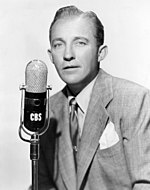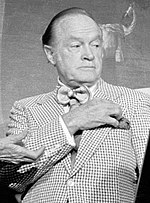| Mellor filme
|
Mellor director
|
|
|
|
| Mellor actor
|
Mellor actriz
|
|
|
|
| Mellor actor secundario
|
Mellor actriz secundaria
|
|
|
|
| Mellor guión orixinal
|
Mellor guión adaptado
|
- Wilson – Lamar Trotti
- Hail the Conquering Hero – Preston Sturges
- The Miracle of Morgan's Creek – Preston Sturges
- Two Girls and a Sailor – Richard Connell e Gladys Lehman
- Wing and a Prayer – Jerome Cady
|
- Going My Way – Frank Butler e Frank Cavett
- Double Indemnity – Raymond Chandler e Billy Wilder
- Gaslight – John L. Balderston, Walter Reisch e John Van Druten
- Laura – Jay Dratler, Samuel Hoffenstein e Elizabeth Reinhardt
- Meet Me in St. Louis – Irving Brecher e Fred F. Finklehoffe
|
| Mellor argumento
|
Mellor curtametraxe de animación
|
- Going My Way – Leo McCarey
- A Guy Named Joe – David Boehm e Chandler Sprague
- Lifeboat – John Steinbeck
- None Shall Escape – Alfred Neumann e Joseph Than
- The Sullivans – Edward Doherty e Jules Schermer
|
- Mouse Trouble – Fred Quimby
- And to Think I Saw It on Mulberry Street – George Pal
- Dog, Cat and Canary – Raymond Katz
- Fish Fry – Walter Lantz
- How to Play Football – Walt Disney
- My Boy, Johnny – Paul Terry
- Swooner Crooner – Edward Selzer
|
| Mellor documental
|
Mellor curtametraxe documental
|
- The Fighting Lady
- Resisting Enemy Interrogation
|
- With the Marines at Tarawa
- Hymn of the Nations
- New Americans
|
| Mellor curtametraxe de ficción, un rolo
|
Mellor curtametraxe de ficción, dous rolos
|
- Who's Who in Animal Land – Jerry Fairbanks
- Blue Grass Gentlemen – Edmund Reek
- Jammin' the Blues – Gordon Hollingshead
- Movie Pests – Pete Smith
- Screen Snapshots' 50th Anniversary of Motion Pictures – Ralph Staub
|
- I Won't Play – Gordon Hollingshead
- Bombalera – Louis Harris
- Main Street Today – Jerry Bresler
|
| Mellor banda sonora, comedia ou drama
|
Mellor banda sonora, musical
|
- Since You Went Away – Max Steiner
- Address Unknown – Morris Stoloff e Ernst Toch
- The Adventures of Mark Twain – Max Steiner
- The Bridge of San Luis Rey – Dimitri Tiomkin
- Casanova Brown – Arthur Lange
- Christmas Holiday – H. J. Salter
- Double Indemnity – Miklós Rózsa
- The Fighting Seabees – Walter Scharf e Roy Webb
- Paixón salvaxe – Edward Paul e Michel Michelet
- It Happened Tomorrow – Robert Stolz
- Jack London – Frederic Efrem Rich
- Kismet – Herbert Stothart
- None but the Lonely Heart – Hanns Eisler e C. Bakaleinikoff
- The Princess and the Pirate – David Rose
- Summer Storm – Karl Hajos
- Three Russian Girls – W. Franke Harling
- Up in Mabel's Room – Edward Paul
- Voice in the Wind – Michel Michelet
- Wilson – Alfred Newman
- Woman of the Town – Miklós Rózsa
|
- As modelos – Morris Stoloff e Carmen Dragon
- Brazil – Walter Scharf
- Higher and Higher – C. Bakaleinikoff
- Hollywood Canteen – Ray Heindorf
- Irish Eyes Are Smiling – Alfred Newman
- Knickerbocker Holiday – Werner R. Heymann e Kurt Weill
- Lady in the Dark – Robert Emmett Dolan
- Lady, Let's Dance – Edward Kay
- Meet Me in St. Louis – Georgie Stoll
- The Merry Monahans – H. J. Salter
- Minstrel Man – Ferde Grofe e Leo Erdody
- Sensations of 1945 – Mahlon Merrick
- Song of the Open Road – Charles Previn
- Up in Arms – Ray Heindorf e Louis Forbes
|
| Mellor canción
|
Mellor son
|
- "Swinging on a Star" de Going My Way – Música de James Van Heusen; Letra de Johnny Burke
- "I Couldn't Sleep a Wink Last Night" de Higher and Higher – Música de Jimmy McHugh; Letra de Harold Adamson
- "I'll Walk Alone" de Follow the Boys – Música de Jule Styne; Letra de Sammy Cahn
- "I'm Making Believe" de Sweet and Lowdown – Música de James V. Monaco; Letra de Mack Gordon
- "Long Ago (and Far Away)" de As modelos – Música de Jerome Kern; Letra de Ira Gershwin
- "Now I Know" de Up in Arms – Música de Harold Arlen; Letra de Ted Koehler
- "Remember Me to Carolina" de Minstrel Man – Música de Harry Revel; Letra de Paul Webster
- "Rio de Janeiro" de Brazil – Música de Ary Barroso; Letra de Ned Washington
- "Silver Shadows and Golden Dreams" from Lady, Let's Dance – Música de Lew Pollack; Letra de Charles Newman
- "Too Much in Love" de Song of the Open Road – Música de Walter Kent; Letra de Kim Gannon
- "The Trolley Song" de Meet Me in St. Louis – Música e letra de Ralph Blane e Hugh Martin
- "Sweet Dreams Sweetheart" de Hollywood Canteen – Música de Maurice K. Jerome e Letra de Ted Koehler
|
- Wilson – E. H. Hansen, Fox Studio Sound Department
- Brazil – Daniel J. Bloomberg, Republic Studio Sound Department
- Casanova Brown – Thomas T. Moulton, Samuel Goldwyn Studio Sound Department
- As modelos – John Livadary, Columbia Studio Sound Department
- Double Indemnity – Loren L. Ryder, Paramount Studio Sound Department
- His Butler's Sister – Bernard B. Brown, Universal Studio Sound Department
- Hollywood Canteen – Nathan Levinson, Warner Bros. Studio Sound Department
- It Happened Tomorrow – Jack Whitney, Sound Service, Inc.
- Kismet – Douglas Shearer, MGM Studio Sound Department
- Music in Manhattan – Stephen Dunn, RKO Radio Studio Sound Department
- Voice in the Wind – W. M. Dalgleish, RCA Sound
|
| Mellor dirección de arte, branco e negro
|
Mellor dirección de arte, cor
|
- Gaslight – Dirección artística: Cedric Gibbons e William Ferrari; Decorados: Paul Huldschinsky e Edwin B. Willis
- Address Unknown – Dirección artística: Lionel Banks e Walter Holscher; Decorados: Joseph Kish
- The Adventures of Mark Twain – Dirección artística: John Hughes; Decorados: Fred M. MacLean
- Casanova Brown – Dirección artística: Perry Ferguson; Decorados: Julia Heron
- Laura – Dirección artística: Lyle Wheeler e Leland Fuller; Decorados: Thomas Little
- No Time for Love – Dirección artística: Hans Dreier e Robert Usher; Decorados: Samuel M. Comer
- Since You Went Away – Dirección artística: Mark-Lee Kirk; Decorados: Victor A. Gangelin
- Step Lively – Dirección artística: Albert S. D'Agostino e Carroll Clark; Decorados: Darrell Silvera e Claude Carpenter
- Song of the Open Road – N/A (candidatura revogado)
|
- Wilson – Dirección artística: Wiard Ihnen; Decorados: Thomas Little
- The Climax – Dirección artística: John B. Goodman e Alexander Golitzen; Decorados: Russell A. Gausman e Ira S. Webb
- As modelos – Dirección artística: Lionel Banks e Cary Odell; Decorados: Fay Babcock
- The Desert Song – Dirección artística: Charles Novi; Decorados: Jack McConaghy
- Kismet – Dirección artística: Cedric Gibbons e Daniel B. Cathcart; Decorados: Edwin B. Willis e Richard Pefferle
- Lady in the Dark – Dirección artística: Hans Dreier e Raoul Pene du Bois; Decorados: Ray Moyer
- The Princess and the Pirate – Dirección artística: Ernst Fegte; Decorados: Howard Bristol
|
| Mellor fotografía, branco e negro
|
Mellor fotografía, cor
|
- Laura – Joseph LaShelle
- Double Indemnity – John F. Seitz
- Dragon Seed – Sidney Wagner
- Gaslight – Joseph Ruttenberg
- Going My Way – Lionel Lindon
- Lifeboat – Glen MacWilliams
- Since You Went Away – Stanley Cortez e Lee Garmes
- The Uninvited – Charles Lang
- The White Cliffs of Dover – George J. Folsey
- Thirty Seconds Over Tokyo – Robert Surtees e Harold Rosson
|
- Wilson – Leon Shamroy
- As modelos – Rudolph Maté e Allen M. Davey
- Home in Indiana – Edward Cronjager
- Kismet – Charles Rosher
- Lady in the Dark – Ray Rennahan
- Meet Me in St. Louis – George J. Folsey
|
| Mellor montaxe
|
Mellores efectos especiais
|
- Wilson – Barbara McLean
- Going My Way – Leroy Stone
- Janie – Owen Marks
- None but the Lonely Heart – Roland Gross
- Since You Went Away – Hal C. Kern e James E. Newcom
|
- Thirty Seconds Over Tokyo – Fotografía: A. Arnold Gillespie, Donald Jahraus e Warren Newcombe; Son: Douglas Shearer
- Días de gloria – Fotografía: Vernon L. Walker; Son: James G. Stewart e Roy Granville
- Secret Command – Fotografía: David Allen, Ray Cory e Robert Wright; Son: Russell Malmgren e Harry Kusnick
- Since You Went Away – Fotografía: Jack Cosgrove; Son: Arthur Johns
- The Adventures of Mark Twain – Fotografía: Paul Detlefsen e John Crouse; Son: Nathan Levinson
- The Story of Dr. Wassell – Fotografía: Farciot Edouart e Gordon Jennings; Son: George Dutton
- Wilson – Fotografía: Fred Sersen; Son: Roger Heman Sr.
|









